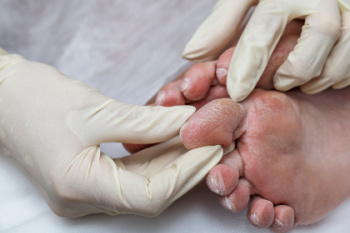Connect With Us
Blog
Items filtered by date: May 2025
Foot Care Matters When You Have Diabetes

For individuals living with diabetes, the feet need extra attention. Reduced circulation and nerve damage can make it harder to notice cuts, blisters, or pressure spots, and issues that may lead to serious infections if ignored. Even a small sore can escalate quickly without proper care. Washing your feet daily, drying them carefully, and inspecting them for any changes can make a meaningful difference. Choosing shoes that fit well and allow your feet to breathe helps protect vulnerable areas from friction or injury. Staying active also supports blood flow to the lower legs and feet. Most importantly, do not wait for pain to appear, as by then, the damage may already be underway. If you have diabetes and notice redness, swelling, or even just an unusual sensation, it is suggested that you see a podiatrist for a proper diagnosis and appropriate treatment.
Diabetic foot care is important in preventing foot ailments such as ulcers. If you are suffering from diabetes or have any other concerns about your feet, contact one of our podiatrists from Redwood Podiatry Group. Our doctors can provide the care you need to keep you pain-free and on your feet.
Diabetic Foot Care
Diabetes affects millions of people every year. The condition can damage blood vessels in many parts of the body, especially the feet. Because of this, taking care of your feet is essential if you have diabetes, and having a podiatrist help monitor your foot health is highly recommended.
The Importance of Caring for Your Feet
- Routinely inspect your feet for bruises or sores.
- Wear socks that fit your feet comfortably.
- Wear comfortable shoes that provide adequate support.
Patients with diabetes should have their doctor monitor their blood levels, as blood sugar levels play such a huge role in diabetic care. Monitoring these levels on a regular basis is highly advised.
It is always best to inform your healthcare professional of any concerns you may have regarding your feet, especially for diabetic patients. Early treatment and routine foot examinations are keys to maintaining proper health, especially because severe complications can arise if proper treatment is not applied.
If you have any questions please feel free to contact our offices located in Eureka and Arcata, CA . We offer the newest diagnostic and treatment technologies for all your foot and ankle needs.
